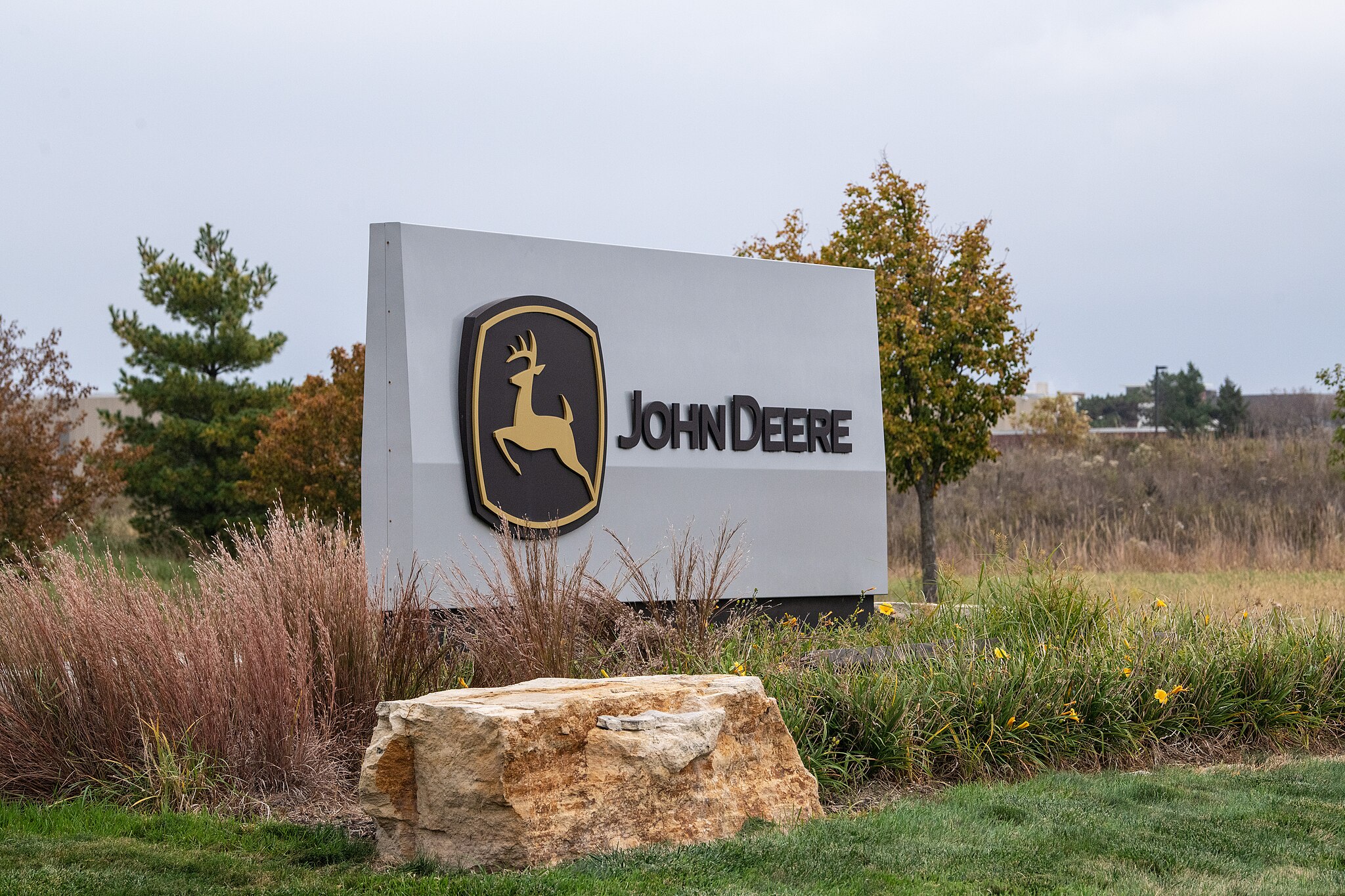Nicholas Cocozzelli is an economic analyst and founder of the Inequality Focus Substack newsletter, where this piece originally appeared.
John Deere, a major employer for Iowans, has faced severe criticism for its recent series of layoffs in the Hawkeye State. The agricultural equipment company announced in February it would be laying off 119 workers at its plant in Ankeny, Iowa. The Ankeny plant employs roughly 1,500 workers total. Over the past year, Deere has made roughly 2,000 job cuts at its plants across the state.
Deere has blamed a struggling farm economy for these cuts, but has been criticized as seeking a cheaper labor market in Mexico. Last year, when the company announced layoffs in Dubuque, Deere confirmed that it was “…shifting some production from its Dubuque Works facility in Iowa to a new facility it is building in Ramos, Mexico.”
According to Industrial Equipment News, production of mid-frame skid steer loaders and compact track loaders will be relocated from the Dubuque facility to Ramos. The Des Moines Register also noted that Deere faced scrutiny for outsourcing some lines of production from other plants across Iowa, specifically in Waterloo and Ottumwa, to Mexico.
Laid off workers will face economic pain
Layoffs for the Ankeny plant have already begun, with the first and second rounds having already occurred on March 28 and April 4, respectively. The third and final round is scheduled for April 28. Laid off employees will receive supplemental unemployment pay followed by transitional assistance that will cover half of their average weekly earnings for up to a year. In terms of health care, separated workers will keep their coverage for at least six months (or potentially longer, if eligible for supplemental pay that exceeds the six month period).
At a time when the cost of housing, health care, and groceries is still too high, reduced pay and limited health coverage will certainly bring about great pain to these workers. Once an iconic American company, John Deere is selling out Iowans to enhance their bottom line.

A vintage John Deere tractor built in Waterloo. | Credit: Tamanoeconomico, CC BY-SA 4.0 <https://creativecommons.org/licenses/by-sa/4.0>, via Wikimedia Commons.
The United Auto Workers (UAW) union condemned these layoffs in an official statement. UAW noted Deere’s substantial corporate profits and high CEO pay in its remarks.
“Let’s be clear: there is no need for Deere to kill good American jobs and outsource them to Mexico for cheap labor. The company is forecasted to make $7 billion in profit this year. CEO John May’s total compensation for 2023 was $26.8 million. The company has spent $43.6 billion on stock buybacks and dividends over the past two decades. There is no question that there is enough profit to go around, and Deere can afford to keep good jobs in Iowa…”
The union vowed to do everything in its power to alleviate the impact of the layoffs in both Iowa and Illinois (where Deere is also cutting jobs). UAW also criticized the federal government regarding faulty trade agreements.
Some may argue this move will result in lower prices for American consumers due to lower production costs. However, as the UAW notes, John Deere has billions of dollars it could certainly use to absorb increased expenses during times of high interest rates and a slow farm economy. It could use the $43.6 billion it used in stock buybacks and dividends to protect the prosperity of workers in Iowa. Instead, it chooses shareholders over workers. That is just wrong.
Politicians on both sides have failed workers in Iowa
For workers across the Midwest, this kind of economic pain is all too familiar. As the UAW noted, flawed free trade agreements that took shape decades ago have done significant damage to workers. These problems stem from both Republicans and Democrats. Presidents George H.W. Bush and Bill Clinton both supported the North American Free Trade Agreement (NAFTA) in the early 1990s. President George W. Bush granted China “…permanent normal trading relations (PNTR) status…” in 2001 and advocated for the country’s entry into the World Trade Organization that same year.
The U.S. Bureau of Labor Statistics has noted that between 1990 and 2019, machinery manufacturing jobs declined by 22.3 percent across all Midwestern states, except South Dakota. Between 2001 and 2013, an Economic Policy Institute report found a net 24,600 jobs had been displaced in Iowa due to America’s goods trade deficit with China.

President Donald Trump and President Joe Biden both attempted to revitalize domestic manufacturing. During Trump’s first presidency, the United States would enter the United States-Mexico-Canada Agreement (USMCA), which had Mexico commit to enacting “…sweeping legal changes to combat forced labor and violence against workers, and allow for independent unions and labor courts.”
That agreement effectively replaced NAFTA. If Mexico would strengthen its labor protections, it could help close the wage gap between Mexican and American workers—thereby reducing incentives for U.S. companies to offshore. Biden’s administration would then utilize the USMCA agreement to file cases against companies who engaged in such labor abuses.
While recent administrations have taken more action than previous ones, jobs are still being lost. Workers are still experiencing pain. More recently, then-candidate Trump threatened John Deere with a 200 percent tariff on imports if the company decided to shift production to Mexico as planned. Deere appears to be calling his bluff, going through with the layoffs despite such threats. The chaotic tariff rollout over the past month—coupled with Trump walking back many of them—has likely emboldened Deere to proceed with its offshoring plans.
Time will tell whether there will be a resurgence of manufacturing in Iowa and the United States as a whole. In our view, more measured tariffs—such as those implemented during the Biden administration—could ensure worker protections without sacrificing economic stability. This, in addition to direct investments in manufacturing (particularly in the production of goods such as semiconductors) could ensure better employment opportunities for Midwestern workers facing economic hardship.

